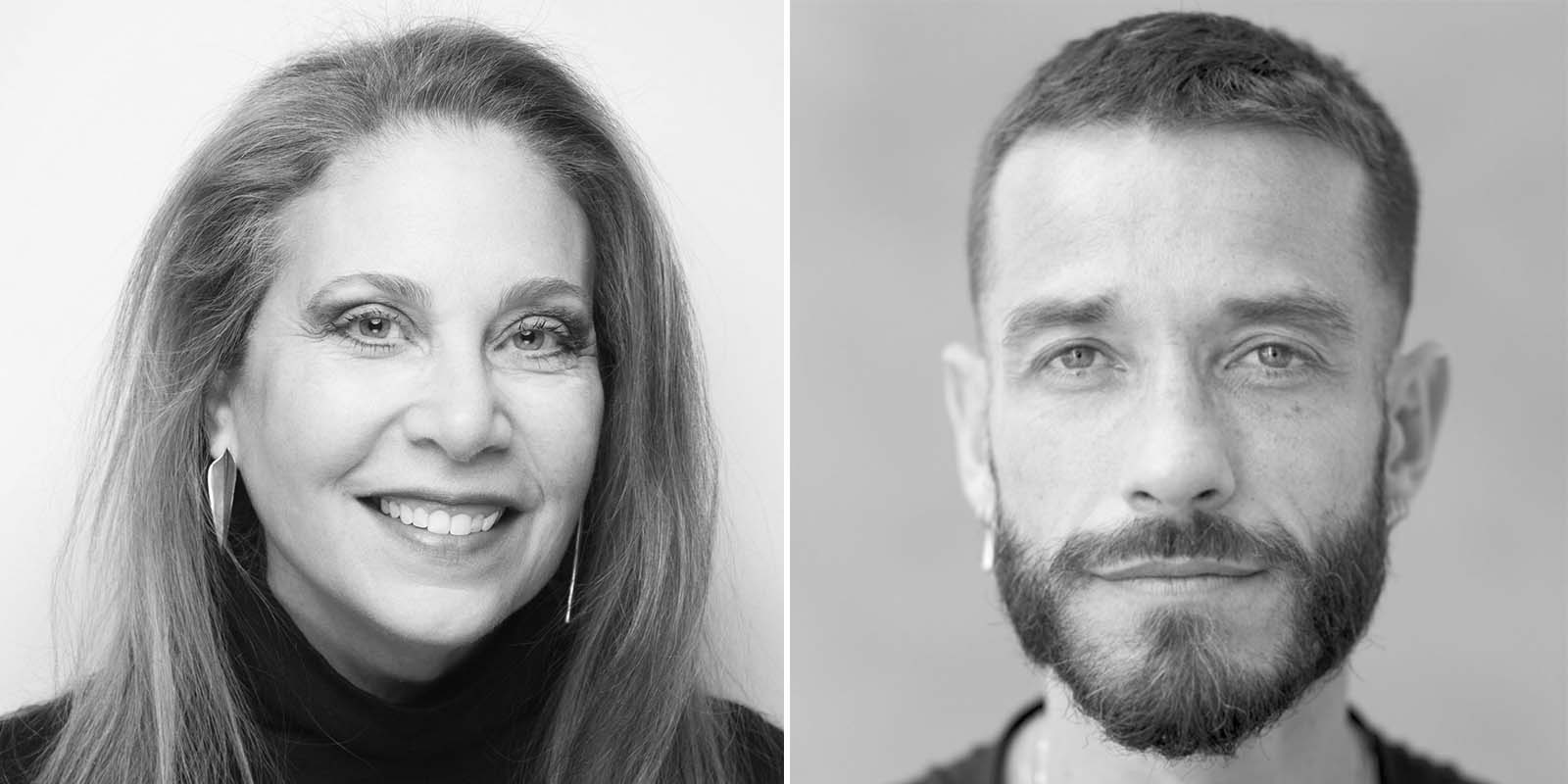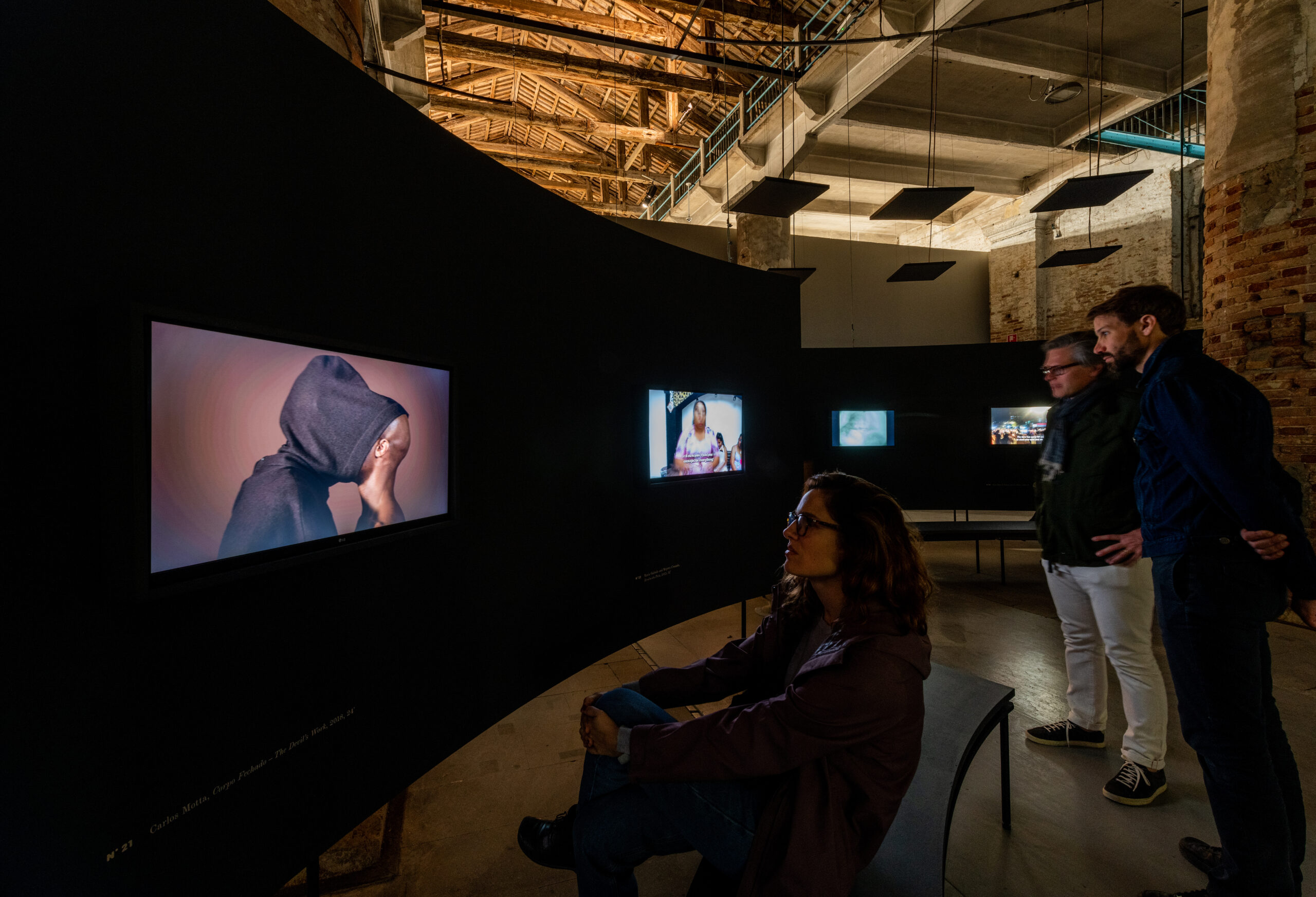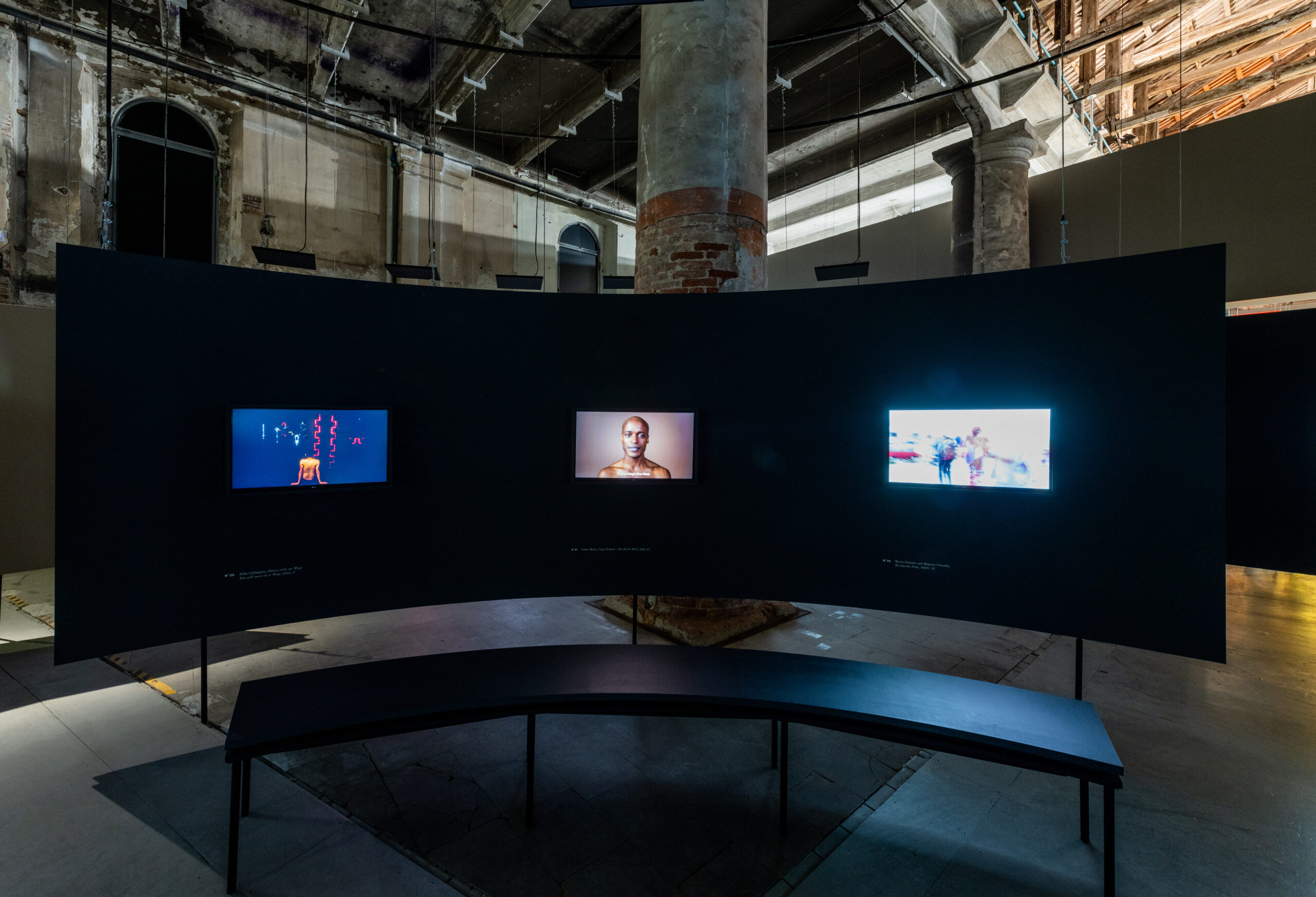Two members of Pratt’s faculty are currently exhibiting their work at esteemed Venetian venues. Visiting Associate Professor of Interior Design and Undergraduate Architecture Nina Freedman is showing work at the European Cultural Centre (ECC) Art Biennial, while Associate Professor of Interdisciplinary Practice in Fine Arts Carlos Motta is exhibiting at the 60th International Art Exhibition of La Biennale di Venezia. Both artists consider themes of belonging and visibility in their work. In addition to faculty participation, current Pratt Fine Arts MFA candidate Agnes Questionmark is also exhibiting at this year’s Venice Biennale.
The ECC, founded in 2002, organizes art and architecture exhibitions, symposia, and a wide range of cultural projects worldwide. Its exhibitions in Venice are visited by over 600,000 people each year. Now in its seventh year, the ECC Art Biennial in Venice runs concurrently with The Venice Biennale.
Since 1895, The Venice Biennale has gathered top artists from around the world to share their work. The prestigious cultural institution stands at the forefront of research and promotion of new contemporary art trends, organizing events in art, architecture, cinema, dance, music, and theater.
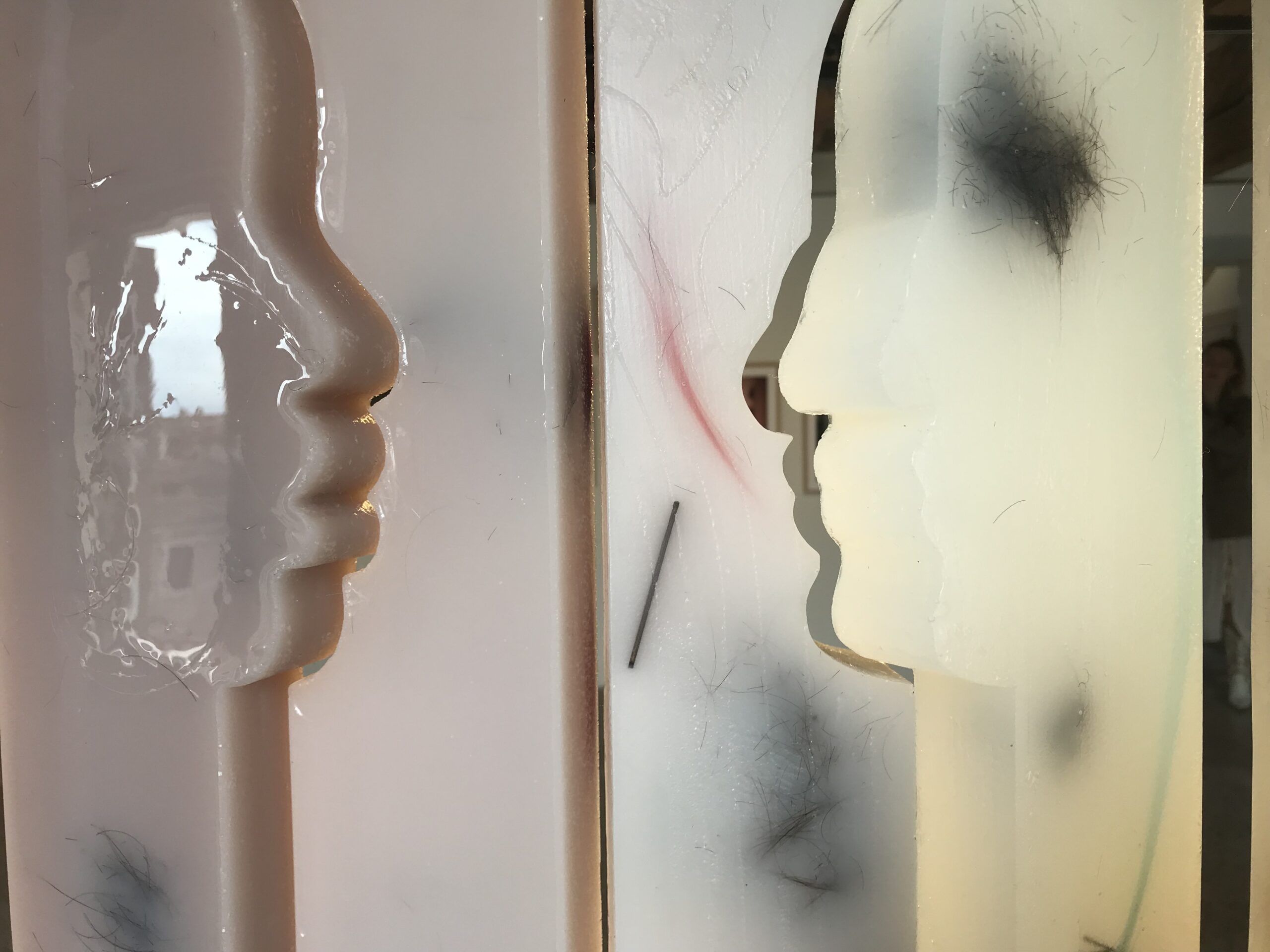
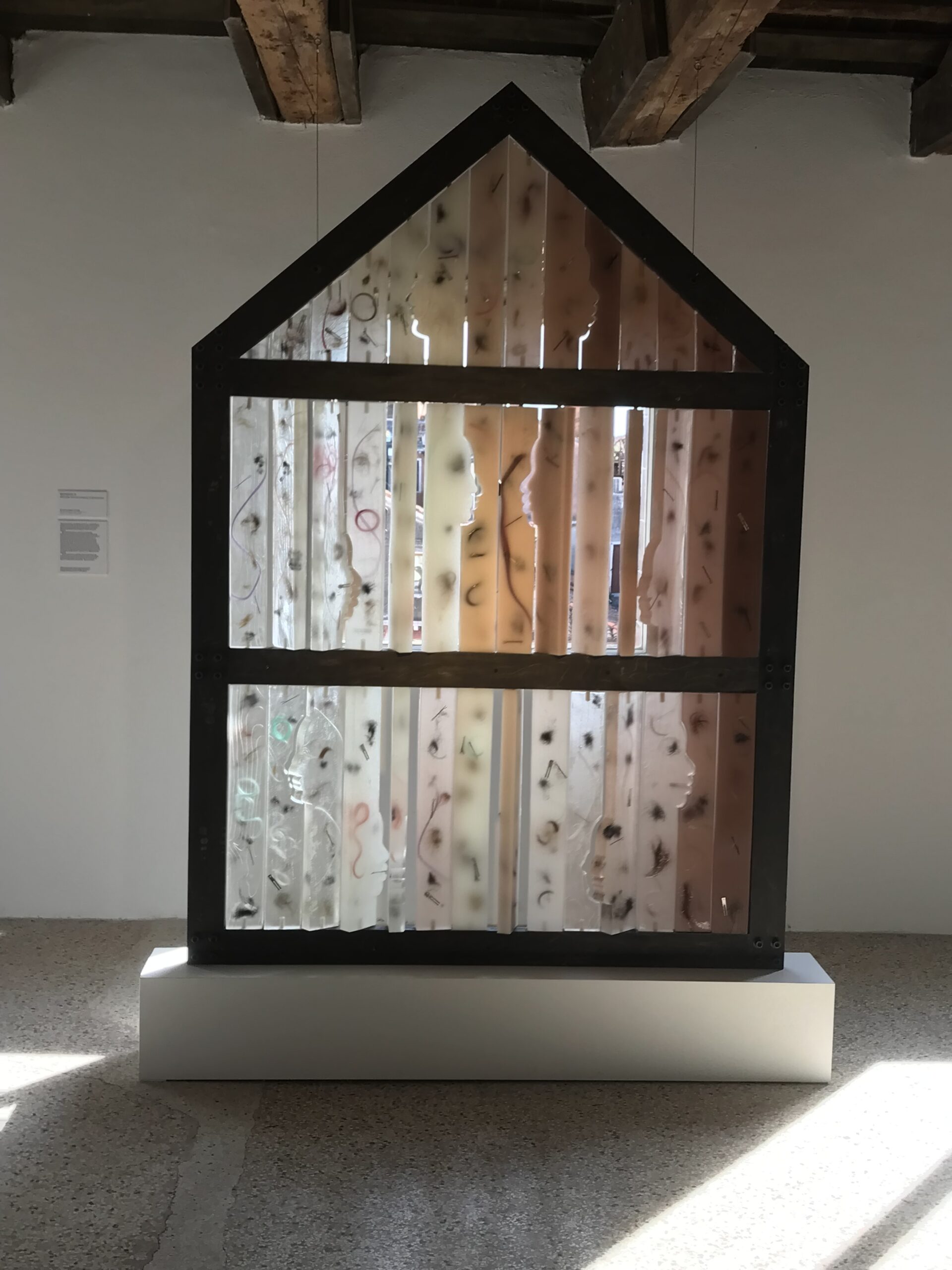
Nina Freedman’s interactive installation Face-Ade: The Human Landscape is on view as part of the ECC Art Biennale’s exhibition Personal Structures | Beyond Boundaries. Using diverse hair waste collected from New York City neighborhood hair salons, the piece transforms a typical private home facade into an intimate and translucent “skin” in order to explore how domestic architectural symbols can speak to belonging and vulnerability. The pigmented and transparent bio-resin wall studs, contoured with human profiles, rotate in a wood structure and simultaneously function like “exterior cladding” when closed. The installation prompts viewers to consider the narratives and identities concealed behind the facades in our neighborhoods. It asks, who lives behind these walls? How do we, in our differences, live together? Face-Ade: The Human Landscape will be open until November 24, 2024, at the Palazzo Mora.
The topic of home is part of both her personal art practice as well as her work as an educator. “In my design studios, I try to help students use their work as a compassionate lens on issues they believe in, or are part of their experience,” Freedman said. “While a ‘home’ might seem like a microcosm of experience, it is the seed of a wider metaphorical narrative which touches all spheres of life. The dialogue opportunities about this in class, here in NYC, with an international student body, are culturally and experientially rich, contributing to amazing design possibilities.”
Freedman, a NYSCA 2024 Grantee, is an interdisciplinary architect, artist, educator, and host of the podcast Whereing, which, like much of her work, explores belonging, design, and home. She is the founder and principal of Dreamland Creative Projects and is currently working on a memoir which considers what one loses and gains in order to belong, and what one loses and gains when one decides not to. Recently, she designed a miniature bio-resin jewelry collection called Conversations based on the human profiles in Face-Ade.
Face-Ade is supported by Pratt Institute School of Design, Pratt Institute Department of Interior Design, Production Labs at the School of Design, Pratt Institute Sponsorship for NYSCA Grant, The New School, and Puffin Foundation.
-
![Curved wall featuring three screens.]() Disobedience Archive, Corpo Fechado: The Devil’s Work, 2018, Carlos Motta, Foreigners Everywhere: The Venice Biennale, installation view, photo by Ding Musa
Disobedience Archive, Corpo Fechado: The Devil’s Work, 2018, Carlos Motta, Foreigners Everywhere: The Venice Biennale, installation view, photo by Ding Musa -
![People watch the video installations of Corpo Fechado.]() Disobedience Archive, Corpo Fechado: The Devil’s Work, 2018, Carlos Motta, Foreigners Everywhere: The Venice Biennale, installation view, photo by Ding Musa
Disobedience Archive, Corpo Fechado: The Devil’s Work, 2018, Carlos Motta, Foreigners Everywhere: The Venice Biennale, installation view, photo by Ding Musa
Carlos Motta’s moving multidisciplinary work Corpo Fechado: The Devil’s Work (2018) is included in Marco Scotini’s Disobedience Archive, in Foreigners Everywhere, curated by Adriano Pedrosa, which includes works by 39 artists and collectives made between 1975 and 2023.
Corpo Fechado tells the true story of José Francisco Pereira—played by Angolan actor Paulo Pascoal—who was sold into slavery in Brazil in the 18th century. As a means of survival, Pereira, among others, created “bolsas de mandinga”—amulets to protect fellow enslaved people from injury. After Pereira was sold to a slaveholder in Portugal, the Lisbon Inquisition tried him for sorcery and charged him with sodomy, since he confessed to copulating with male demons as part of creating the amulets. Exiled from Lisbon, Pereira was condemned to end his days enslaved rowing in a galley. Corpo Fechado: The Devil’s Work imagines Pereira as the agent of his own narrative, reclaiming the terms of representation from the account of his own destruction.
“Corpo Fechado contributes to the thematic conversation of difference and migration proposed by the larger exhibition—centering the story of a 18th century enslaved man doubly discriminated against for his sexual orientation and religious beliefs,” said Motta. “Through this work I seek to contest colonial discourses developed and enacted through punishment that continue to determine the lives and fates of many people around the world.”
Motta’s multidisciplinary art practice documents the social conditions and political struggles of sexual, gender, and ethnic minority communities in order to challenge normative discourses through acts of self-representation. He has exhibited internationally, and his first 20-year career monograph, Carlos Motta: History’s Backrooms, was published by SKIRA in June 2020. At Pratt, he is a full-time faculty member and coordinates the Integrated Practices area of the Fine Arts MFA.
A mid-career survey of Motta’s work, curated by Agustín Perez-Rubio and Maria Berrios, will be opening at Museu d’Art Contemporani de Barcelona (MACBA) on February 20, 2025, featuring works from the mid-90s through the present, including a new work commissioned for the exhibition.
